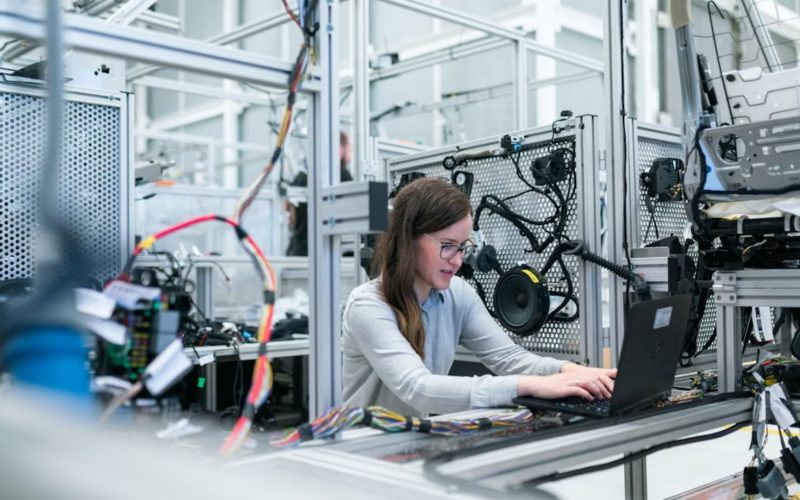The way we work is undergoing a profound transformation. Fueled by technological advancements, shifting societal values, and the global pandemic’s impact, the workplace has evolved into something far more dynamic, flexible, and innovative. From remote work technologies to AI-powered tools, businesses are rethinking traditional structures and embracing innovations that redefine productivity, collaboration, and employee well-being. This article explores the cutting-edge trends shaping the future of work and what they mean for businesses and employees alike.
The Rise of Remote and Hybrid Work Models:
Remote work, once a niche option for a select few, has become a standard for millions worldwide. The pandemic accelerated this trend, forcing organizations to adapt quickly to decentralized teams. Now, hybrid work models—combining in-office and remote work—are the new norm.
Innovations in remote work technology have made this transition seamless. Platforms like Zoom, Microsoft Teams, and Slack provide robust communication and collaboration tools, enabling employees to stay connected regardless of location. Additionally, asynchronous communication tools, such as Loom and Notion, allow teams to work across time zones without the need for constant real-time interaction.
Companies like Dropbox and Twitter have embraced remote-first policies, allowing employees to work from anywhere. This shift not only increases flexibility but also expands access to global talent, as location is no longer a barrier to hiring top performers.
However, with remote work comes challenges, such as maintaining company culture and fostering team cohesion. To address this, businesses are investing in virtual team-building activities, remote onboarding programs, and periodic in-person retreats to strengthen relationships and alignment.
AI and Automation Revolutionizing Productivity:
Artificial intelligence and automation are redefining how work gets done. By handling repetitive and time-consuming tasks, these technologies free employees to focus on more creative and strategic activities.
For instance, AI-driven tools like Grammarly and Jasper enhance productivity in writing and content creation, while platforms like Salesforce Einstein and HubSpot use AI to provide insights into customer behavior, helping sales and marketing teams refine their strategies.
Robotic Process Automation (RPA) is transforming industries such as finance and healthcare by automating data entry, invoice processing, and patient scheduling. This not only reduces errors but also improves efficiency and cost-effectiveness.
As AI continues to evolve, the potential for collaboration between humans and machines grows. Far from replacing jobs, these technologies augment human capabilities, enabling teams to achieve more with less effort.
The Office of the Future: Smart and Sustainable Spaces
While remote work is thriving, the physical office isn’t disappearing—it’s being reimagined. The future office is a hub for collaboration, creativity, and innovation, designed to complement hybrid work models.
Smart office technologies are leading this transformation. IoT-enabled devices monitor space usage, energy consumption, and air quality, creating more efficient and comfortable environments. For example, sensors can adjust lighting and temperature based on occupancy, enhancing employee well-being while reducing energy costs.
Sustainability is also a key focus. Green buildings with energy-efficient designs, renewable energy sources, and eco-friendly materials are becoming the standard. Companies like Google and Apple have invested heavily in sustainable campuses that reflect their commitment to the planet while fostering innovation.
Additionally, the layout of offices is changing. Traditional cubicles are giving way to open, flexible spaces that encourage collaboration. Quiet zones, brainstorming pods, and wellness areas provide employees with environments tailored to their specific tasks and needs.
The Role of Employee Well-Being and Mental Health:
The future of work prioritizes not just productivity but also the well-being of employees. Organizations are recognizing that a healthy, engaged workforce is essential for long-term success.
Technology is playing a crucial role in this shift. Apps like Calm and Headspace are being integrated into employee wellness programs, offering meditation and mindfulness tools. Wearable devices, such as Fitbit and WHOOP, help employees track physical activity and stress levels, encouraging healthier habits.
Flexible work schedules are another innovation aimed at improving mental health. Companies like Shopify and Spotify have introduced “no-meeting days” and four-day workweeks, allowing employees to recharge and focus on deep work without constant interruptions.
By investing in mental health resources and fostering a culture of support, businesses not only improve employee satisfaction but also boost retention and performance.
Upskilling and Reskilling in the Age of Automation:
As technology reshapes industries, the demand for new skills is growing. Upskilling and reskilling initiatives are critical for preparing employees to thrive in the future workplace.
Digital learning platforms like Coursera, Udemy, and LinkedIn Learning are providing accessible and affordable education for employees seeking to expand their expertise. Companies like Amazon have launched ambitious reskilling programs, such as its $700 million investment to upskill 100,000 workers in areas like data science and machine learning.
The shift toward lifelong learning ensures that employees remain adaptable and competitive in an ever-changing job market. It also demonstrates a company’s commitment to its workforce, fostering loyalty and trust.
The Role of Leadership in the Future of Work:
Innovation in the workplace isn’t limited to technology—it also requires forward-thinking leadership. Leaders must navigate the complexities of hybrid teams, embrace technological advancements, and prioritize inclusivity and well-being.
Transparent communication is more important than ever. Employees want to feel connected to their organization’s mission and values, even when working remotely. Regular updates, virtual town halls, and one-on-one check-ins help maintain alignment and trust.
Moreover, empathetic leadership is becoming a defining trait of successful organizations. Leaders who prioritize understanding, flexibility, and support create environments where employees feel valued and motivated to excel.
The future of work is being shaped by innovation at every level, from cutting-edge technologies to reimagined office spaces and employee-centric policies. Organizations that embrace these changes are not just adapting—they’re thriving, creating workplaces that are more productive, inclusive, and sustainable.
As businesses continue to navigate this transformation, the focus should remain on balance: leveraging technology while fostering human connection, prioritizing well-being alongside productivity, and embracing flexibility without losing cohesion. In this era of rapid evolution, the organizations that innovate with intention will lead the way, setting new standards for what work can and should be.
Image Source: Unsplash.com












